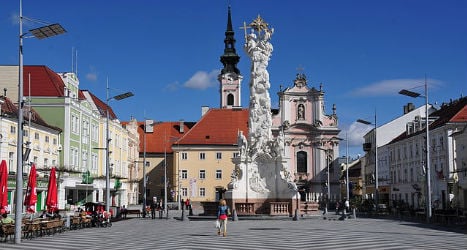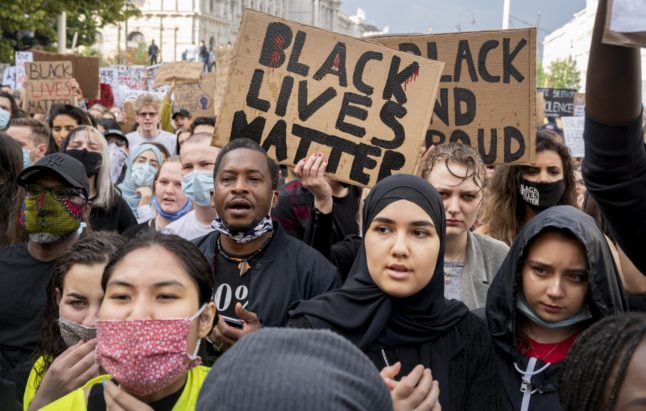RACISM
Driver carries out apparent racist attack in front of police
A driver who tried to drive his car into a group of men in what appeared to be a racist attack was quickly arrested after carrying out the action right in front of policemen.
Published: 9 August 2016 11:54 CEST

The main square in St. Pölten. Ralf Roletschek / fahrradmonteur.de / Wikimedia
The incident happened in the city of St. Pölten in Lower Austria where a Sudanese man was standing with four friends in the main square.
Speaking to Heute newspaper, 29-year-old James G. said: “I was waiting here for a taxi on Rathausplatz with four black friends shortly before midnight when a car driver stopped a few metres before us and stared at us from the car for a minute.
According to James G. the driver then drove on but turned around the block and drove back towards the five men.
“If we didn’t dive to the side, he would have knocked us down. He then called us 'tree monkeys', gave us the finger and fled,” he said.
Unfortunately for the driver, the attack happened directly infront of a police car that had turned into the square at the exact moment of the incident.
After a short chase, the policemen stopped the 67-year-old driver and arrested him. A test showed the driver – who had no driver’s license – had 1.7 pro mille of alcohol in his blood.
He was reported to prosecutors for endangering public safety.
James G. told media he is “hunted” wherever he goes. “I had to flee from Sudan, in America my jealous ex-girlfriend ran at me with a pistol and in St. Pölten a racist tried to kill me with his vehicle,” he said.
Url copied to clipboard!


 Please whitelist us to continue reading.
Please whitelist us to continue reading.